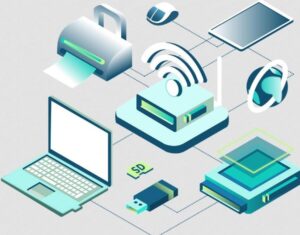Digitization Working Skills

Digitization as a phenomenon is broad and does not have a single official definition. Usually it is explained according to the context used. It can describe the electrification of services, communication on social media, or, for example, the utilization of different technologies in everyday life. The effect of digitalization is strongly emphasized in working life skills. Three entities related to digitization stood out at the forefront of growing working life skills: the ability to utilize digital solutions, the ability to utilize digital platforms, and the management and control skills of digital operations.
Among other things, the creative implementation of digital technologies and the ability to apply digital tools made it to the top ten of digital skills. In the report, digitality was defined as the renewal of comprehensive operating methods, which also includes the introduction of new digital technologies. Digital technologies mean analytics, big data, mobile technologies, cloud services, robotics, social media and the internet of things (including the industrial internet).
The rapid development of digital technology has been visible in healthcare for a long time. In social services, the development has been considerably slower, despite the fact that the needs of digital skills have been in the government program for a long time. Various digital solutions have indeed been developed for social services, but their introduction has been considerably slower than in healthcare services.
The introduction of technology requires expertise
Digital technology works for some, but not for all. Therefore, it is important to ensure that the adoption of technology does not create inequality. In social services, staff are a valuable resource and technology must work for their benefit, but also for their customers. In order to increase digitization, a new kind of know-how is needed for e.g. Service design, digital information management and agile development.
When introducing new technology, it is important to ensure that the operation and technology work together. In connection with the implementation, efforts have been made to adapt the new technology to the existing routines and ways of working, in which case perhaps the best benefit from it will not be obtained. The introduction of new digital technology requires that practices, operations and actors’ roles be changed to the extent that there is a need.
Employees must have the opportunity to gain more skills that meet the demands of the digital age. Increasing employees’ interest, finding it and utilizing it is essential in change and its promotion. The employee must also see the benefits that come from his own work and what benefits digitalization brings to the citizen and to the citizen’s everyday life. Involving employees in the opportunity to influence and develop is of paramount importance. That is why it is essential that employees are offered incentives for development, challenging themselves and opportunities for inclusion.



